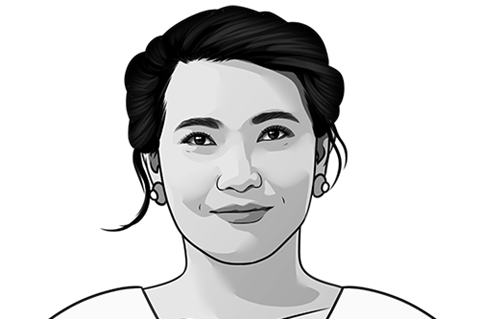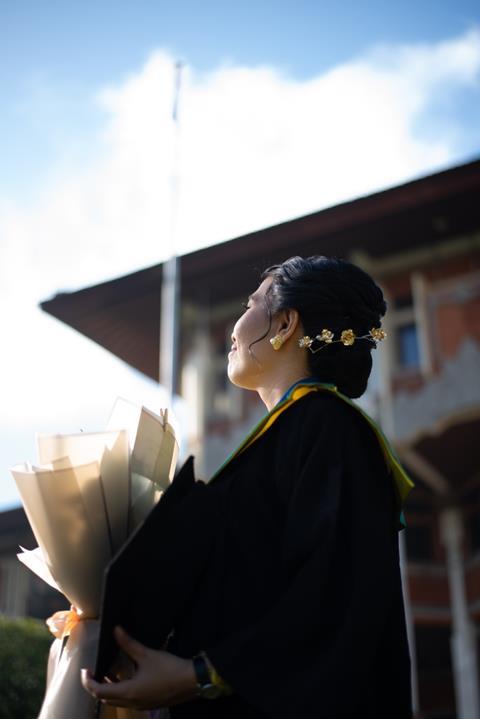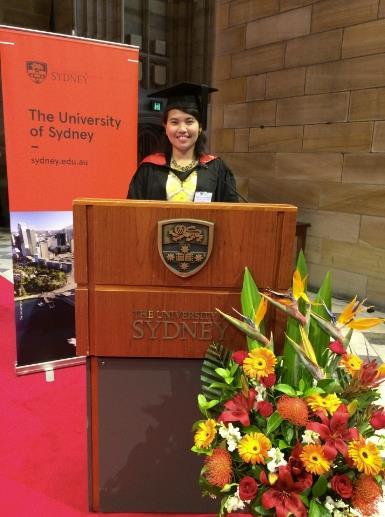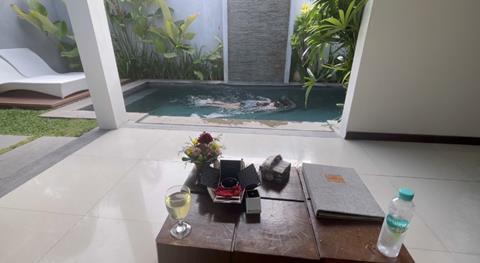The Microbiologist chats with our new Global Ambassador for Indonesia, Ni Luh Putu Harta Wedari, a Clinical Microbiologist, Publication Consultant, and Editorial Board Member of Scientific Journals at Intisari Sains Medis Incorporation.

Harta accomplished her Clinical Microbiology Specialist degree from the Universitas Udayana, Bali, Indonesia, in 2024 with summa cum laude. She completed a Master of Medicine (Infection and Immunity) at the University of Sydney, Australia in 2019 with a full scholarship from the Government of the Republic of Indonesia.

Besides her professional expertise, she has been actively appointed as a reviewer in numerous international scientific journals in terms of clinical microbiology and immunology.
Furthermore, becoming an Indonesian representative of “youthinkgreen jugend denkt um.welt” organisation based in Berlin, Germany, amplified her dedication and best efforts to fulfil her responsibility in addressing sustainable development issues for a better foreseeable future.

In addition to that, completing a Fellowship in Biosafety and Biosecurity, Health Security Partners, Biosecurity Engagement Program by the U.S. Department of State shaped Harta with a solid foundation to engage in a collaborative approach and network expansion both locally and internationally to deliver knowledge and scientific services to all social strata.
What first sparked your love of microbiology?
My love of microbiology has grown since I was in the immunology module of my bachelor’s degree in medicine. There may be potentially hazardous microorganisms out there that we are unaware of. Thus, every interaction between microbiota in our body will significantly affect the specific immunological antigen-antibody reaction.
What’s the microbe that most fascinates you and why?
Multidrug-resistant organisms (MDROs), primarily bacteria, resist one or more antimicrobial agent classes. These include carbapenemase-producing Enterobacteriaceae, vancomycin-resistant Enterococci species (VRE), methicillin-resistant Staphylococcus aureus (MRSA), and Gram-negative bacteria that produce extended-spectrum beta-lactamases (ESBLs).
MDROs currently strike quickly and severely; therefore, we should expect a continuous increase in the number of instances of previously treatable illnesses turning untreatable once more, with even minor infections or medical procedures becoming potentially fatal.
What’s the best career advice you’ve ever been given?
“Every person you meet is a potential door to a new opportunity—personally or professionally. Build good bridges even in that just-for-now job, because you never know how they’ll weave into the larger picture of your life” — Kristina Leonardi, Career Coach.
What real-world problem would you eventually love to solve with microbiology?
Antimicrobial resistance (AMR), the silent pandemic. AMR is mainly caused by the overuse and misuse of antibiotics, even though they are essential for preventing and treating infections and diseases in humans, animals, and plants.
AMR is a complex worldwide issue among the top 10 worldwide public health threats in the 21st century, increasing the expenses associated with public health, the economy, and society and driving more people into poverty, particularly in low-income nations.
What keeps you awake at night?
The relationship between dietary and human gut microbiota has become a topic I have implemented myself, and I keep analyzing it. Through their effects on the microbial ecosystem, dietary patterns—including the balance of macronutrients and feeding/fasting cycles—impact gut homeostasis. Addressing overweight, obesity, and metabolic syndrome has seen a rise in the benefits of intermittent fasting (IF). IF may have various effects on human gut microbiome-mediated activities by influencing the makeup of the gut microbiota.
What do you do to relax?
I enjoy reading psychology/self-help/motivational books, swimming, and watching Jamie Oliver on YouTube on cooking and growing organic foods.

If I need to relax on another level, I will get myself to a traditional Balinese massage and spa.
Why did you apply to become a Global Ambassador, and what would you like to do in your new role?
I would love to serve as an accountable bridge between science and society by developing my skills in good science communication. This involves clearly and concisely describing the significance of scientific work, its context, and how the findings differ from opinion, speculation, or anecdotal evidence. This pillar’s components are related to how communication meets the needs of its audience and, in a broader sense, the social purpose of science communication.
Find out about becoming a Global Ambassador with AMI.







No comments yet